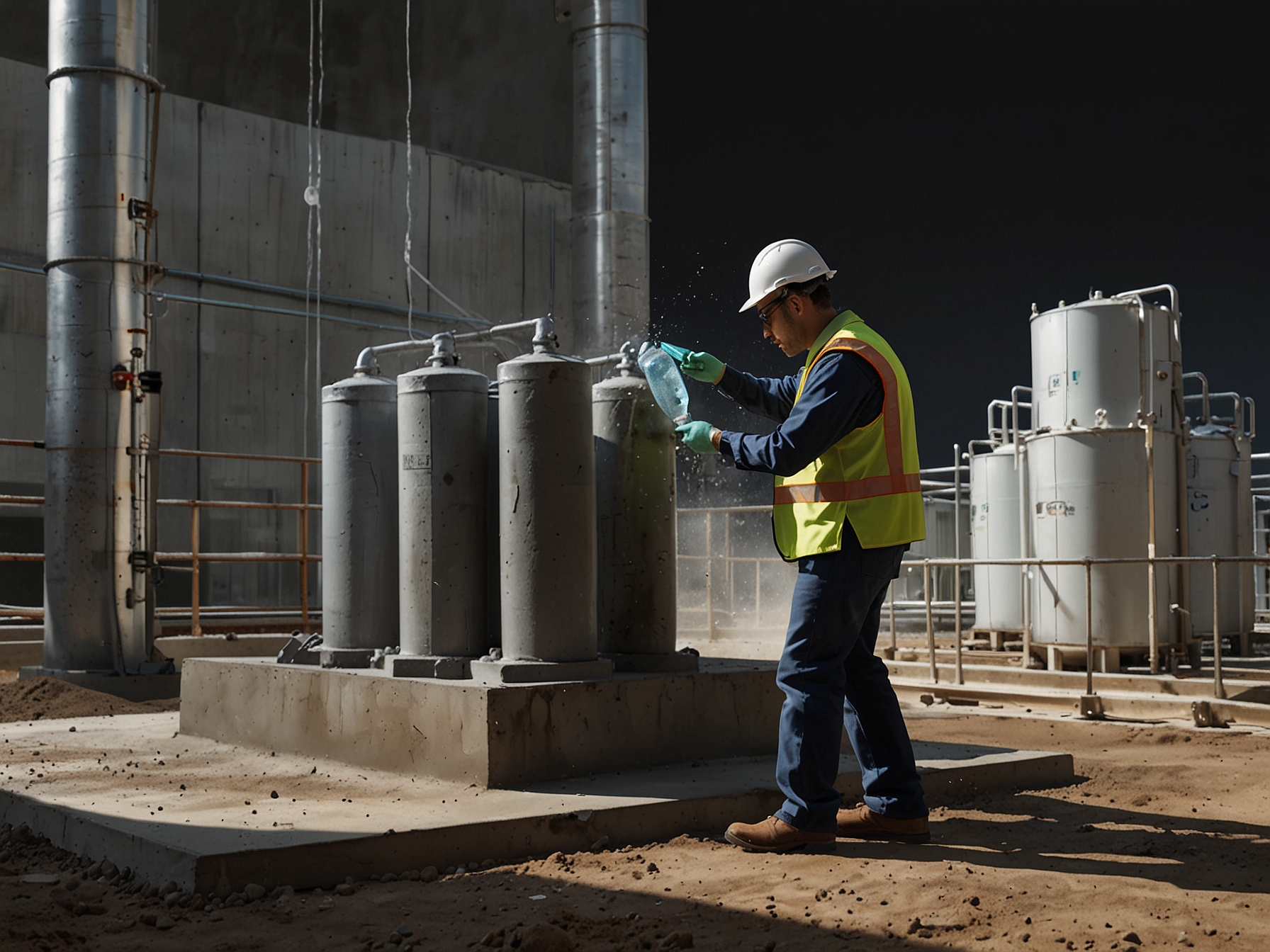Concrete, a staple in construction, is known for its durability and widespread use. However, the production of concrete is responsible for a significant amount of carbon dioxide (CO2) emissions, contributing to global climate change. In an exciting development, a team of engineers led by Northwestern University has discovered an innovative method to store CO2 in concrete. This new process utilizes a carbonated water-based solution during the manufacturing of concrete, a breakthrough that not only reduces CO2 emissions but also maintains the material’s strength and integrity.

© FNEWS.AI – Images created and owned by Fnews.AI, any use beyond the permitted scope requires written consent from Fnews.AI
The traditional process of creating concrete involves mixing cement, water, and aggregates such as sand and gravel. Cement, a primary component of concrete, is produced by heating limestone and other materials to high temperatures, a process that releases a substantial amount of CO2. This new technique revolutionizes the formula by replacing still water with carbonated water. The result is a concrete material that embeds CO2 within its structure, effectively storing it rather than releasing it into the atmosphere.
One of the critical concerns with sustainable building practices is ensuring that environmentally friendly materials do not sacrifice performance. The use of carbonated water in concrete production addresses this by retaining the material’s mechanical properties. Initial tests conducted by the Northwestern University-led team reveal that the carbonated concrete maintains comparable, if not superior, strength to conventional concrete. This finding is pivotal as it dispels the notion that sustainability necessarily compromises durability.

© FNEWS.AI – Images created and owned by Fnews.AI, any use beyond the permitted scope requires written consent from Fnews.AI
Beyond the mechanical advantages, there are also potential environmental benefits to consider. The construction industry is a significant consumer of natural resources and a major contributor to greenhouse gas emissions. By utilizing CO2 in the production of concrete, this method contributes to a circular economy, where waste CO2 from industrial processes can be repurposed and stored in a beneficial way rather than being released into the atmosphere. This not only helps in reducing our carbon footprint but also paves the way for more innovative approaches to sustainable engineering.
Moreover, the integration of CO2 into concrete has long-term benefits that extend beyond the manufacturing stage. Concrete structures, such as buildings and infrastructure, are meant to last for decades if not centuries. Storing CO2 in concrete locks away the greenhouse gas for the entire lifespan of these structures. This contrasts with more traditional carbon capture methods, which require continuous management and have risks associated with long-term storage.
Implementing this new process on a large scale could significantly impact global CO2 levels. Imagine the possibilities if every road, bridge, and building worldwide could be constructed using carbonated concrete. The potential reduction in CO2 emissions from the concrete industry would be substantial. Given the scale of urban development and infrastructure projects globally, the adoption of this technology could serve as a critical measure in combating climate change.
While the initial results are promising, more research and testing are necessary to refine the process and fully understand the long-term implications of carbonated concrete. Issues such as the scalability of the process, cost implications, and the performance of carbonated concrete in various environmental conditions will need thorough evaluation. Nonetheless, the potential benefits make it an avenue worth exploring.
In conclusion, the discovery of using a carbonated water-based solution in concrete production represents a significant stride towards sustainable construction practices. The method effectively stores CO2 without compromising the strength and durability of concrete, offering a promising solution to reduce the carbon footprint of one of the most widely used construction materials. As the world continues to grapple with the urgent need to reduce greenhouse gas emissions, innovations like carbonated concrete are crucial in paving the way for a more sustainable future. The work undertaken by the Northwestern University team exemplifies the possibilities that arise when science and engineering converge to address global challenges.
Was this content helpful to you?





